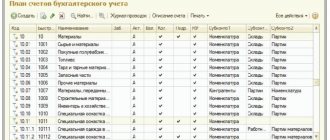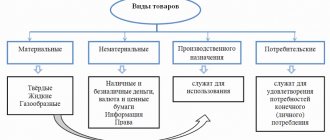How to pay child support via mail
After the spouses have divorced, one of the parents who lives separately from the joint minor children has an obligation to pay a certain amount of money - alimony .
In the present age of technology, there are various ways to transfer money, including alimony, the most economical is transfer from one bank card to another. However, postal transfer is a more reliable and simpler method.
It is possible to transfer benefits from any Russian post office , which currently exists in every locality, including in rural areas. In order to send money, the sender must have with him an identification document and the required amount.
The application form, which is filled out by mail , depends on who chose the method of transferring alimony by such a transfer:
- if by court, the payer is obliged to indicate: the period for which the money is transferred; the amount of income for a certain amount of time and how many days he worked; the amount of personal income tax from wages; debt information; amount sent;
- if there is an agreement, then it is enough to indicate the surname, first name, patronymic of the sender and recipient; transfer amount; address and zip code of who should receive the money.
When sending alimony by postal order, there are options for choosing a transfer service ; the “Forsazh” system is very common. Money is transferred literally within a few hours to any location in our country. Transfer of funds to the recipient is carried out only in cash.
Transfer of alimony by mail is possible either as an address transfer or as a non-address transfer . In the first case, the address of the recipient is indicated, money can only be received at a specific post office, in the second, it is necessary to write the last name, first name and patronymic of the ex-spouse, who can receive alimony at any branch by presenting a passport.
Types of transfers and terms for their implementation
The payer can send different types of transfers.
- Addressed or unaddressed . In the first option, the money is sent to a specific post office. The other parent will only be able to pick them up there. Addressless transfer allows you to receive funds by visiting any post office in the city.
- Urgent and ordinary . Money sent using the expedited service arrives within a few hours. With a regular transfer, the recipient will be able to withdraw the money after a longer time.
- With or without home delivery . For a certain surcharge, postal employees can deliver money to the recipient’s place of residence. In the usual manner, funds are issued by specialists from the liaison office.
Another difference concerns the timing of money delivery.
- Western Union services offered by post offices. It allows you to receive payment in 5 minutes . The downside will be the higher cost of translation.
- Sending through QIWI terminals to post offices. The money will arrive the next business day .
- Sending using bank card . The other parent will be able to receive the funds the next business day .
- Using the CyberMoney service for foreign transfers. The period for receiving funds is from 2 to 8 working days .
- Special translation of "Fast and Furious" . The recipient will be able to pick up the funds after an hour. If a debt amounting to more than 100 thousand rubles is transferred, then the execution period will be up to 2 days .
- Standard postal transfer is delivered within 8 days after registration.
Transfer from individuals
Before transferring funds, you must check that the form is filled out correctly. The document must contain complete information.
- In the field with the transferred amount, the amount of money sent is indicated in numbers and in words.
- The recipient's column must contain the full name of the other parent.
- In the field with the recipient's address, you must indicate the postcode, full name of the region, locality, street, house and apartment.
- The column about the sender is filled out with his full name.
- In the address information field, complete information about the payer’s place of residence is entered.
- It is necessary to fill out the “message” column. The purpose of the payment is indicated, for example, “child support for June 2021.” The absence of this information may become the basis for the formation of debt.
- In the field about the presented document, the passport details of the debtor are entered.
- In the citizenship column, nationality is indicated.
- Next is the signature.
To quickly complete the document, you can use the sample for filling out a mail order of alimony located above.
Transfer from organization
An agreement on alimony, a writ of execution or a court order can be presented to the accounting department of the enterprise where the debtor works. From each salary and bonus, he will be required to withhold funds for the maintenance of the child.
Before sending collected alimony payments by postal order from an organization, you must check all the data in the form.
- The employer is required to provide information about the number of days the debtor worked during the month, the amount of earnings received and personal income tax withheld from it, and the amount transferred for the maintenance of the minor.
- A link to the document providing the basis for the recovery is required. It is a notarial agreement, a writ of execution or a court order. You must indicate the number and date of its registration.
- The purpose of the payment is to pay off the accumulated debt for a particular period (you must indicate its balance), as well as the fulfillment of current obligations for the month.
The company must issue a power of attorney for the employee who sends the money.
Postal fee when transferring alimony by mail
When transferring alimony benefits by mail, you must pay a postage fee, which is paid with each transfer. These expenses must be borne by the payer. He does not have the right to impose such payments on the recipient of alimony.
Amounts of tariffs that are charged when transferring funds, including alimony, if the transfer amount is:
- no more than 1 thousand rubles, then the fee is 40 rubles + 5% of the amount;
- more than 1 thousand rubles, but less than 5 thousand rubles, then 50 rubles + 4% of the transfer amount;
- more than 5 thousand rubles, but less than 20 thousand rubles, then 150 rubles + 2%;
- more than 20 thousand rubles, but less than 500 thousand rubles, then 250 rubles + 1.5 of the transferred amount.
The size of the postal fee depends on the amount transferred; the lower the amount, the lower the percentage will be charged to the payer. It is advantageous to transfer small amounts of money by mail.
In order to avoid conflict situations, it is best to save all receipts , which are confirmation of the timely payment of benefits. This document reflects the date and amount of transferred funds.
Power of attorney to receive alimony by mail
There are cases when the former spouse cannot independently receive alimony for a minor child, which the payer transfers by postal order. As a rule, this is due to relocation or workload.
This problem can be solved quite simply by writing a power of attorney for a person who can receive a postal order for the recipient. As a rule, such a document is written for close relatives (parents) or close friends.
a power of attorney to receive alimony benefits certified by a notary office to avoid any misunderstandings when receiving money. When writing it, you must display the following information:
- the name of the document is a power of attorney to receive alimony;
- place and date of compilation;
- details of the principal - last name, first name and patronymic; full passport details; place of residence;
- information about the authorized person - full name; number, series and who issued the passport; registration address;
- number and address of the post office where you need to receive benefits;
- on the basis of what (agreement or court decision) alimony is paid in this way;
- information about the minor child (children) for maintenance to whom the benefit is transferred;
- validity period of the power of attorney;
- date of signing;
- handwritten signature of the principal.
It is possible to certify a power of attorney to receive alimony benefits from any notary, regardless of its territorial location.
Example
Having been married for more than 5 years, Valentina and Sergey Kiselyov decided to get a divorce. By court decision, Sergei was ordered to pay alimony to two minor daughters - Olga and Alisa, who remained to live with Valentina. Due to the fact that the ex-wife remained to live in a rural area (Kaluga region), and Sergei moved to the regional center, he had to transfer the monthly allowance by postal transfer.
Two months after the divorce, Valentina, together with Olya and Alisa, went to Norilsk for permanent residence. After the move, the ex-wife lost the opportunity to receive alimony for her daughters, so she turned to a notary, with whom she wrote a power of attorney for her mother, who remained to live in the same village from which she left. According to this document, the grandmother of Olya and Alisa could receive a monthly allowance for her granddaughters at the post office, which she subsequently sent to their bank account in Norilsk.
Transfers from a bank card with cash receipt
It often happens that the recipient does not have a card or refuses to issue one.
In this case, the alimony payer can make a transfer from his card to a certain bank branch , and the other party can receive it in cash.
Depending on the selected bank:
- delivery time - from a few minutes to 3 days;
- cost of the service - from 1 to 5%, paid by the debtor;
- it is necessary to indicate the full name, telephone number of the payer, recipient;
- receiving cash at specific points of issue upon presentation of a passport and departure number;
- There is a daily limit.
Russian Post also provides a similar service:
- transfer only in rubles;
- minimum 100 rubles, maximum 15 thousand rubles;
- only from Mastercard and Maestro cards;
- within 2-8 days;
- commission 1.5%, minimum 30 rubles;
- Home delivery is possible (4.5%, minimum 90 rubles).
Confirmation of the transfer is a payment receipt or online document.
If you have a problem getting money, you need to seek help in person or by calling the hotline.
Accounting entries when transferring alimony by mail
According to Art. 109 of the Family Code of the Russian Federation, the administration of the organization at the place of work of a person obligated to pay alimony on the basis of a notarized agreement on the payment of alimony or on the basis of a writ of execution, is obliged to withhold alimony monthly from the salary and (or) other income of the person obligated to pay alimony and pay or transfer them at the expense of the person obligated to pay alimony to the person receiving alimony no later than three days from the date of payment of wages and (or) other income to the person obligated to pay alimony.
The legislation of the Russian Federation provides several options for calculating the amount of alimony benefits :
- a certain share or percentage of income. As a rule, it is applied only by court decision. However, the judge may set a fixed benefit amount if the payer does not have a regular income. The amount of payments depends on the number of minor children: one child - 1/4 of income; two children - 1\3; more than two - 1\2. The amount of alimony can be changed by a court decision;
- in a fixed amount.
The amount of alimony benefits is calculated only after income has been withheld from individuals. The costs of sending funds are borne by the payer , since they are additional costs.
The deduction of benefits under the writ of execution is made by debiting the accounts on which income is accrued to the payer, as well as by crediting account 76 “Settlements with various debtors and creditors,” with which the “Alimony” subaccount is opened.
At the same time, not all income from which alimony benefits are calculated are reflected in account 70 “Settlements with personnel for wages”. To reflect profit from leasing real estate, it is necessary to reflect account 73 “Settlements with personnel for other operations.”
If the money has not been received
In some cases, alimony payments do not reach the recipient for some reason. In such situations, it is necessary to understand everything before filing a claim with the payer.
If the payer sends the alimony personally, then, if possible, it is worth contacting him. He must have a payment document that confirms that the funds have been sent.
It is in his interests to get in touch and assist the recipient in every possible way, since otherwise the recipient may go to court.
If alimony is paid by the payer's employer, he can also provide a payment document. However, he is not obliged to do this. A bailiff may request such information, so it is worth contacting him.
If the money is never received and the payer does not provide evidence of sending, the recipient has the right to go to court (if alimony is paid voluntarily) or to the bailiff service to initiate forced collection. The payer will have to prove the fact that funds were sent to them.
The legislator does not limit citizens in the methods of paying alimony. The main goal is simple - the money must be received by the person in need. Using the mechanisms of the Russian Post seems quite convenient, as it allows you to transfer funds without opening accounts or bank cards, which is an additional advantage for regions where such an opportunity is not available, as well as for citizens who, due to various circumstances, cannot do this.
Required documents when contacting the bailiff service
- Resolution from the bailiff.
- An application requesting the transfer of alimony to the recipient's account is transferred to the bailiff service. Expenses that arise as a result of the transfer of funds to the recipient are borne by the payer.
- In cash, transferred directly by the payer.
- A receipt indicating the amount paid and the date, preferably the presence of a third party.
- At the cash desk from the payer’s place of work.
In the case when alimony is paid in cash from the cash desk of an enterprise at the payer’s place of work, to the recipient or to a representative who has a power of attorney, the cashier is obliged to record the date, place of issue and number of the passport or other document that identifies the recipient, as well as his place of registration.
Question answer
Question
Since the beginning of 2013, my ex-husband has been paying alimony allowance for the maintenance of our common young daughter. In June 2015, I decided to move to a neighboring region for permanent residence. Due to the fact that my daughter’s father transferred alimony through a postal transfer, I wrote a power of attorney for my friend Tatyana so that she would receive this money, and then send it to a bank card. However, for three months, my trusted representative has not transferred money to me, although she receives it at the post office every month, citing the fact that she herself has no means of subsistence. Can I get my money back and bring Tatyana to justice for fraud?
Answer
In your case, there are civil legal relations, you can contact the police with a similar statement, but most likely you will receive a decision to refuse to initiate a criminal case due to the lack of corpus delicti in the actions of your friend. In order to return the alimony allowance, file a claim with the court, setting out everything in detail and consistently, it is advisable that a legally competent person help with this. You can attach to the claim as evidence: a copy of the power of attorney, information from the post office about the transfer of alimony and its receipt by the authorized person, as well as an extract from your accounts stating that your friend did not transfer any funds.
Question
My husband and I divorced at the beginning of 2015; from our marriage we have two minor sons who, by court decision, live with me; my ex-husband lives in a neighboring village. According to the court order, the father of the children was obliged to transfer monthly alimony benefits by postal transfer in my name. But after the divorce, I got a job, and due to my busy work schedule, I have no opportunity to receive alimony payments by mail. I decided to write a document that would allow my mother to receive child support by mail instead of me. Having learned about this, the ex-husband threatened that he would appeal this power of attorney, since he believes that alimony will not be used to raise children, but will remain with the former mother-in-law. Is it possible that the court will cancel this document and oblige me to personally receive child support benefits?
Answer
You have every right to write a power of attorney to receive alimony benefits, including for your mother; the court is unlikely to invalidate it. It is advisable to have it certified by a notary. However, if the defendant declares that alimony does not go towards the upbringing and maintenance of children, then he must confirm this fact with evidence, and not just words. If such a fact is proven, the court will oblige the payer to transfer no more than 50% of the amount of alimony to the child’s account.






